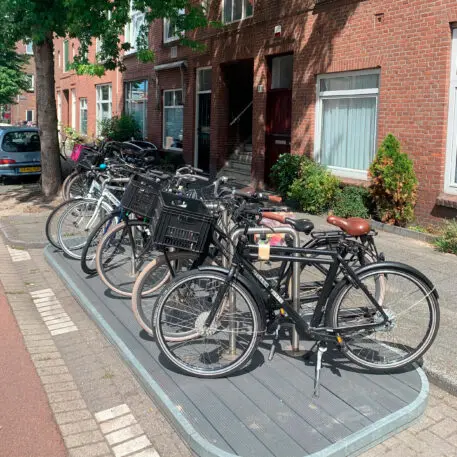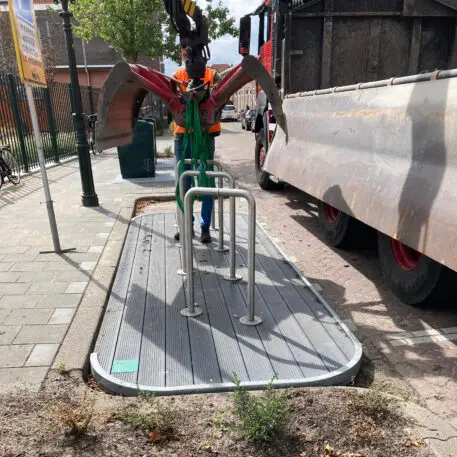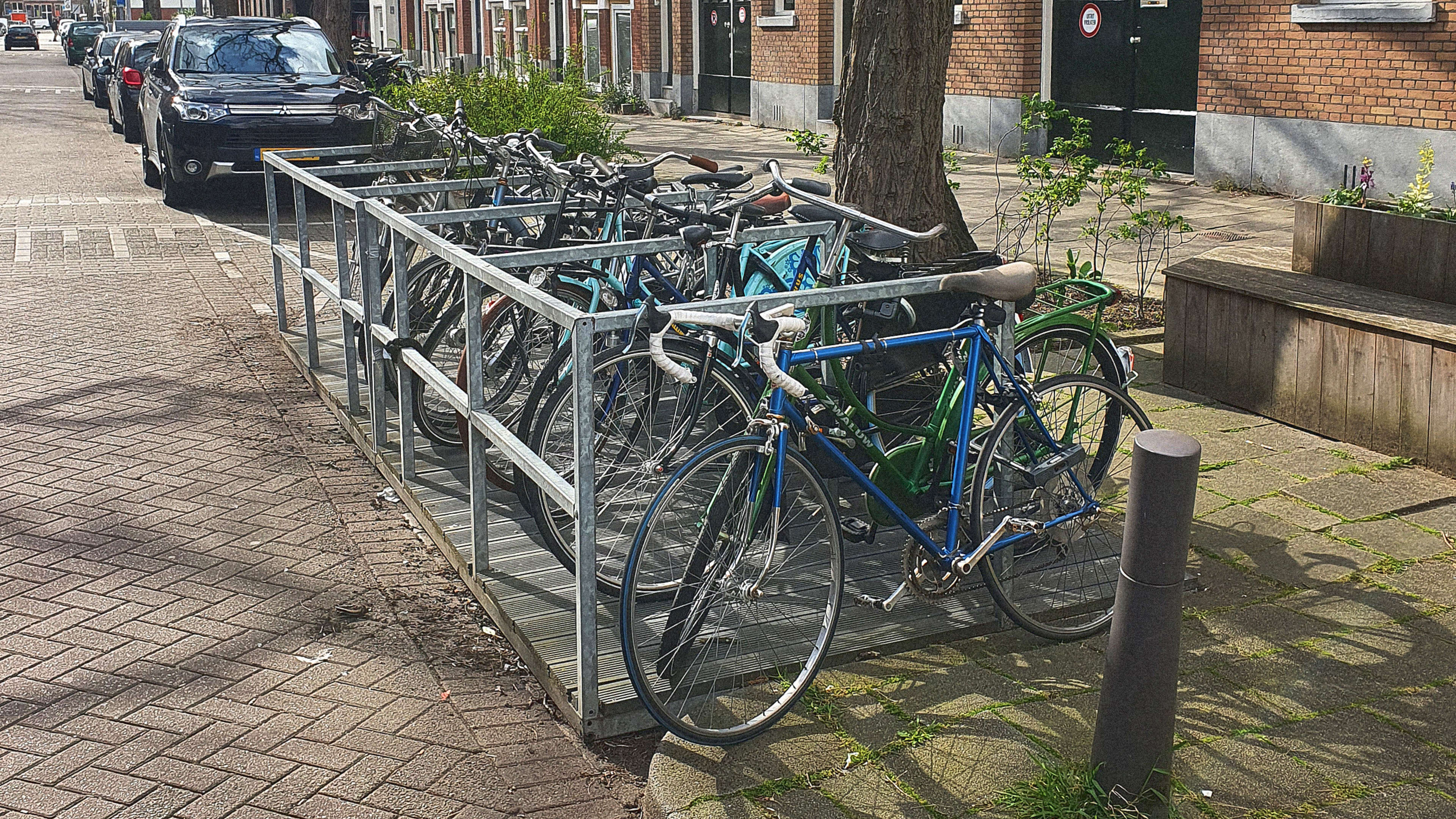A parking spot for a single car can hold as many as 10 bikes—but it’s often a challenge for a city to convince drivers that it’s okay to relinquish car parking space for other uses (witness battles that often ensue when cities add bike lanes next to curbs). In the Netherlands, some cities are using a simple solution: temporary platforms, each with racks for 8 to 10 bikes, designed to fit neatly into one parking space, which are set in place for neighbors to try out before the change becomes permanent.
One recent installation took place on a narrow brick street, densely packed with row houses, near the center of The Hague. Most residents own a bicycle and lack storage space inside; parked bikes often spill onto the sidewalk, blocking the path for pedestrians. In April, a truck pulled up beside a parking spot on the street, and workers lowered a plastic platform with built-in racks into the space. Over the next two months, residents had a chance to give feedback.

[Photo: courtesy Rotterdam]“A bicycle platform is an excellent way to get used to a new situation,” says Yvonne Schutte, a project leader for the city of The Hague. “Over time, the objections fade. Everyone sees that the bicycle platform is immediately put to good use, that there is a real need for it, and that one ‘sacrificed’ parking space makes hardly any difference in the parking pressure.”
The idea came originally from planners in the city of Rotterdam, who were brainstorming ideas in 2015 to help increase biking in a neighborhood that had extra car parking. “We figured, why couldn’t we develop a bicycle platform in order to just test if there’s demand for bicycle parking in this neighborhood—launch it as a test and experiment to help change the mindset of people in this neighborhood,” says urban planner José Besselink. “We also thought it would help us in accelerating this transition because we know that eliminating car parking is a tough thing anywhere in the world.”

In The Hague, neighbors can request a platform for their own block. On one of the streets where bike parking was installed this spring, the project helped residents realize they wanted to do more, says Schutte. “The residents of the street want to go even further and are investigating whether there could be more greenery in the street and whether the street could be made car-free,” she says. “It has also made residents more aware of their living environment and that you can do something about it, together with other residents and the municipality.”
Recognize your company's culture of innovation by applying to this year's Best Workplaces for Innovators Awards before the extended deadline, April 12.
